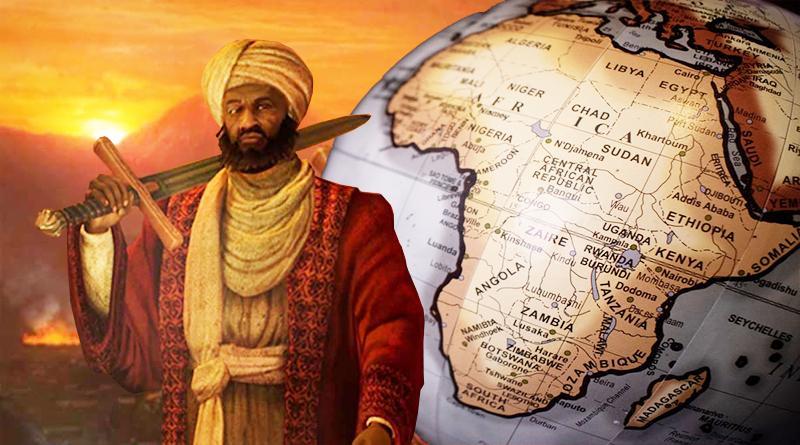Muhammad ibn Abi Bakr al-Turi, known as Askia Muhammad I (1443–1538), was the first king of the Songhai Empire’s Askia Dynasty, ruling from 1493 to 1528. In modern Songhai, he is known as Mamar Kassey and is also known as Askia the Great.
Askia Muhammad expanded his dominion, making it the largest in history of West Africa.
The Songhai Empire reached its pinnacle under his reign, encompassing the Hausa nations as far as Kano (in modern-day Northern Nigeria) and much of the eastern region that had previously belonged to the Songhai empire.
His actions resulted in a rapid increase of trade with Europe and Asia, the establishment of several schools, and the acceptance of Islam as a full member of the empire.
After Sunni Ali Ber died, Muhammad opposed Sunni Baru, his son and planned successor, because he was not seen as a devout Muslim. This provided Muhammad Ture, one of Sunni Ali Ber’s generals, a reason to oppose his succession. In 1493, General Ture fought Baru and took the crown.
General Ture, afterwards known as Askia Muhammad I or Askia the Great, led an expansion and consolidation campaign that stretched the empire from Taghaza in the north to the Yatenga border in the south, and from Air in the northeast to Futa Djallon in Guinea.
Rather than building the empire along Islamic principles, he moderated and built on the old paradigm by establishing a bureaucratic government system that was unrivaled in Western Africa. Askia also created standardized trade standards and laws, began police trade routes, and established a well-organized tax system. He was overthrown by his son, Askia Musa, in 1528.
Askia Muhammad was most likely born in the city of Gao. Baru Lum, his father, was of Toucouleur or Soninke descent, having relatives from the Senegal River valley. His mother’s name was Kassey, and she was Sonni Ali’s sister, according to oral tradition.
Legacy Askia promoted education and literacy, ensuring that Songhai’s universities produced the best academics, many of whom went on to publish important books, including his nephew and friend Mahmud Kati.
Askia Muhammad aligned himself with Timbuktu’s experts to guarantee the legitimacy of his usurpation of the Sonni dynasty, ushering in a golden age for scientific and Muslim scholarship in the city. For example, the great scholar Ahmed Baba wrote volumes on Islamic law that are still in use today.
Tarikh al-fattash was published by Muhammad Kati, and Tarikh al-Sudan (Chronicle of the Black Land) was published by Abdul-Rahman as-Sadi, two historical texts that are essential for modern students recreating African history in the Middle Ages. The Tomb of Askia, the king’s reputed tomb, is now a UNESCO World Heritage Site.
 The African History Truly African
The African History Truly African

